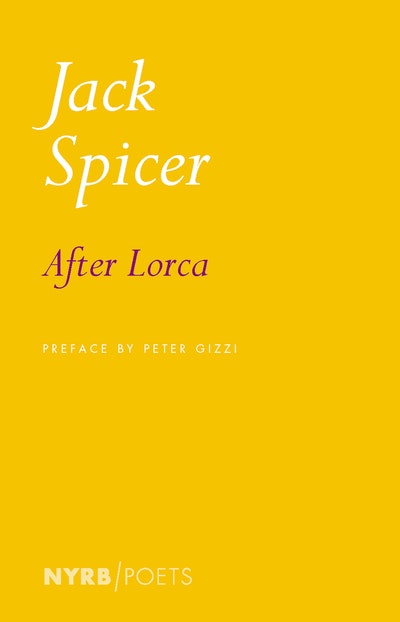- Published: 3 August 2021
- ISBN: 9781681375410
- Imprint: NY Review Books
- Format: Paperback
- Pages: 96
- RRP: $40.00
After Lorca
- Published: 3 August 2021
- ISBN: 9781681375410
- Imprint: NY Review Books
- Format: Paperback
- Pages: 96
- RRP: $40.00
"Through parody and pastiche he exploded every form he touched." -The Nation
"I also find great playfulness, humor and tenderness in some of these poems, and very little shamming, or cant. The first of the Collected Books is After Lorca for which Spicer provided a charming piece of fraudulence, an introductory letter by the dead poet from Andalusia protesting Spicer's liberties with his poems. Spicer in "After Lorca" was attempting to collaborate with a corpse, rather than merely translate his works. The poets, after all, had certain obvious affinities: an interest in language, their homosexuality, a common derangement of the sensibilities such as that other great homosexual poet, Rimbaud, had recommended." --Richar Elman, The New York Times


